In the Golden Age of Broadway, theater songs often topped the pop charts. It wasn’t even unfamiliar for competing versions to rank in the Top 40. Theater songs continue to show up on the pop charts today – and not just the faithful covers from Glee. The following are among the best tracks in the rock era that have been inspired by musical theater.
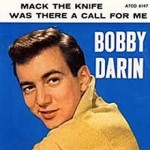 Mack the Knife
Mack the Knife (Bobby Darin): This 1960 Grammy-winning chart-topper proved that musical theater could be hip. Based on the song of the same name from Brecht & Weill’s The Threepenny Opera
, Dick Clark had advised Darin not to record it because opera wouldn’t appeal to a rock audience, but the track became Darin’s signature song and was named one of the 500 Greatest Songs of All Time by Rolling Stone.
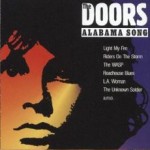 Alabama Song (The Doors): Another Brecht-Weill reinterpretation is Jim Morrison’s distinctive rendition of “Alabama Song” from Rise and Fall of the City of Mahagonny
Alabama Song (The Doors): Another Brecht-Weill reinterpretation is Jim Morrison’s distinctive rendition of “Alabama Song” from Rise and Fall of the City of Mahagonny. Among the tracks on The Doors, the group’s 1967 debut album, Morrison’s version didn’t chart in the US but did hit the Top Five in France. Worth comparison is David Bowie’s 1980 interpretation
, which he released with an acoustic version of his classic “Space Oddity” on the flip side.
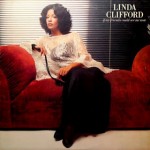 If My Friends Could See Me Now
If My Friends Could See Me Now (Linda Clifford): This 1978 title track from Clifford’s sophomore album is based on the song of the same name from the Sweet Charity
score by Cy Coleman and Dorothy Fields. While remaining true to the melody and lyrics, the track is the epitome of disco production. For five weeks, the song rested atop the Billboard dance charts and paved the way for disco remixes of innumerable other standards in the musical theater catalog, from Evita
to Ethel Merman
.
 Tunnel of Love (Dire Straits): This 1980 rock song from Dire Straits appears on their album Making Movies
Tunnel of Love (Dire Straits): This 1980 rock song from Dire Straits appears on their album Making Movies. It didn’t chart in the US and only reached #54 in the UK, despite being one of the band’s most famous and popular. It also is one of only three Dire Straits songs not credited to Mark Knopfler alone, since the opening instrumental is an arrangement of “Carousel Waltz” from Rodgers and Hammerstein’s Carousel
.
 Material Girl (Madonna): Released in 1985 as the second single from Madonna’s second album, Like a Virgin
Material Girl (Madonna): Released in 1985 as the second single from Madonna’s second album, Like a Virgin, the song became a worldwide success. While the music and lyrics are original, the iconic video is based on Marilyn Monroe’s performance of “Diamonds Are a Girl’s Best Friend” from the film version of Gentlemen Prefer Blondes
, which is worth comparing with Carol Channing’s original stage version
.
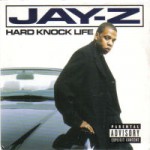 Hard Knock Life
Hard Knock Life (Jay-Z): This 1998 title track from the rapper’s third album is based on the song of the same name from Annie
. The single became Jay-Z’s most commercially successful at the time, peaking at #2 on the rap chart and earning a Grammy nomination for Best Rap Solo. VH1 named it as one of the 100 Greatest Songs of Hip-Hop.
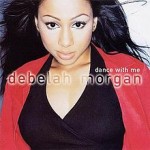 Dance with Me
Dance with Me (Debelah Morgan): Released in 2000 as the first single from Debelah Morgan’s third studio album of the same name, the song is based on “Hernando’s Hideaway” from Adler & Ross’s The Pajama Game
, featuring new lyrics and a different bridge. It remains her highest charting single, reaching the Top Ten on the pop and the dance charts.
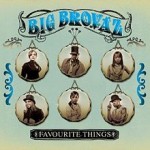 Favourite Things (Big Brovaz): The third single from Brit hip-hop group Big Brovaz’s 2002 debut album, Nu Flow
Favourite Things (Big Brovaz): The third single from Brit hip-hop group Big Brovaz’s 2002 debut album, Nu Flow, the song is based on “My Favorite Things” from Rodgers and Hammerstein’s The Sound of Music
. Featuring a similar melody but several updated lyrics, the song received positive reviews and became the group’s third Top Ten hit and highest charting single in the UK.
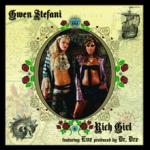 Rich Girl (Gwen Stefani): The second single from Stefani’s 2004 debut solo album, Love. Angel. Music. Baby.
Rich Girl (Gwen Stefani): The second single from Stefani’s 2004 debut solo album, Love. Angel. Music. Baby., the song is based on “If I Were a Rich Man” from Fiddler on the Roof
, with new musical and lyrical elements. The song received mixed reviews but was a commercial success, reaching the Top Ten and earning Stefani and rapper Eve a Grammy nomination for Best Rap/Sung Collaboration.
 Wind It Up (Gwen Stefani): Stefani interpolated another musical theater classic in this track, which was the lead single from her 2006 sophomore release, The Sweet Escape
Wind It Up (Gwen Stefani): Stefani interpolated another musical theater classic in this track, which was the lead single from her 2006 sophomore release, The Sweet Escape. Panned by critics for Stefani’s yodeling parts of “The Lonely Goatherd” from The Sound of Music
, the single nevertheless hit the Top Ten in the US and other international markets.
